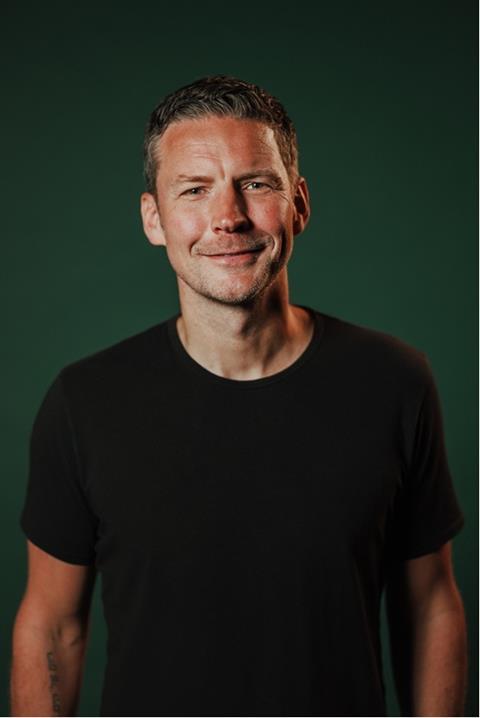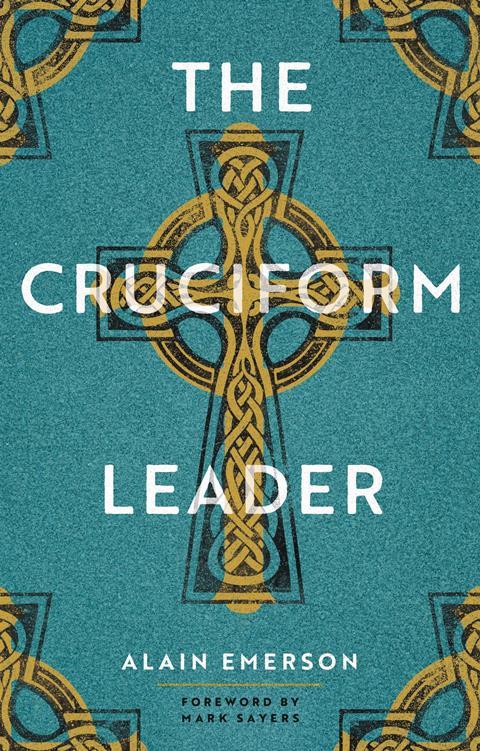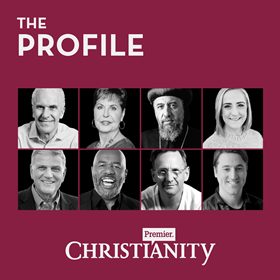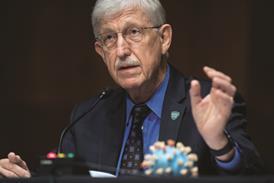The leader of Emmanuel Church, Lurgan and 24-7 Prayer Ireland speaks to Emma Fowle about why the Church needs a wholesale rethink when it comes to leadership models, leading through grief and why the Apostle Paul would turn tables in many Christian conference green rooms

Church leadership is in crisis. A litany of scandals – some of them very high profile – have left people traumatised, wounded and distrustful. A role that has traditionally drawn people towards faith has become one that has kept many away.
It’s into this moment that Alain Emerson’s new book The Cruciform Leader (Muddy Pearl) arrives – and how timely it is. Its message is epitomised in the terrifically alliterated title for the book’s introduction: “Calling forth the hungry, the holy and the humble”. Church leadership is a calling – and a costly one that.
Alain is particularly passionate to see leadership modelled first and foremost on Jesus and the early Church, not on the leadership gurus of the world. He offers eye-opening insights from the New Testament that are so easily missed – like Jesus’ reluctance to be called king before he’s gone to the cross, and Paul stressing the importance of leaders being proved before being platformed.
Speaking with Alain, it’s clear that he embodies what he writes, and the leader he is today has much to do with the “absolutely brutal, dark time” when he lost his first wife, Lindsay, early on in their marriage. His testimony of how God met him in his grief and brought him to a place of hope – as documented in his first book Luminous Dark – is deeply profound and inspiring.
Above all, Alain brings the very welcome reminder of what godly leadership truly looks like and accomplishes. It’s a message that the Church desperately needs to hear.
Tell us a bit about your faith journey.
I was brought up in a Christian home in rural Northern Ireland. One of my earliest memories was asking Jesus into my heart, because we heard a lot about heaven and hell, and I thought I’d better make sure my eternal destiny was secure! I didn’t really experience a real revelation of the love of God – that came later on.
I wouldn’t say I went wild in my teenage years, but certainly enough that, when I was probably 17 years old, I realised I needed to be forgiven. I also had a real desire to know God. What was the purpose of my life? It all made for an encounter with the Holy Spirit and the love of Jesus crashing into my heart, causing me to surrender everything to him.

In The Cruciform Leader you talk about the importance of really knowing that you’re called to leadership. How did that happen for you?
The church that I’m now helping to lead was planted by my uncle when I was 16 or 17, so I was in this young, fledgling, organic, raw, messy sort of church, leading and involved in everything. It was a great training ground and I loved it.
Reflecting on my school years, I’ve since realised that there was probably a natural gift of leadership, too. If there was group work in the class and somebody had to do the feedback, or somebody had to pull the group together, I found myself naturally doing that.
A number of trusted people also had quite strong prophetic words and called out that gift in me.
What’s one of the biggest lessons you’ve learned along the way?
In my passion to serve God, I wanted to prove it to everybody else. I probably thought I was better than I actually was, and wanted to lead all the time and thought I could do better than most other people who were doing it! I needed to learn how to crucify my flesh and ego.
Your previous book Luminous Dark dealt with a really difficult time in your life. Could you share a little about that?
When I was in my early 20s, I met a girl called Lindsay. We married when I was 25 and she was 21. A year later, we realised that she had a brain tumour. While we hoped that she’d make it through after her first brain surgery, the tumour grew back and she died nine months later. It was an absolutely brutal, dark time. Something happened that I never imagined would. It became a journey of finding God in the loneliest, darkest place you could imagine.
I’m seduced at times by forms of leadership that are more akin to worldly success than the way of Jesus
I had a blog to update people on Lindsay’s sickness and how to pray. When she died, I had this strange sort of connection with so many people who had been engaged in the process. As I shared some thoughts on processing the grief, I began getting more and more emails and letters from people who were really identifying with that place. I realised that more needed to be done to give people permission to grieve and lament, and ultimately come to a place of hope, because the Bible is full of that journey. That’s where the book came from.
Were you already in leadership at that time?
Yes. The church that I was leading, Emmanuel, was planted by my uncle. His wife - my aunt - died suddenly in 2006, aged 48. Thirteen months later, Lindsay died. We had a really tragic time as a church dealing with the deaths of the pastors’ wives. I still don’t know how to find the words to describe what that journey was like. God carried us through.
I remarried three years later to Rachel, who has been an incredible gift in my life, and we’ve got three kids. Life is as good as I could ever have imagined it to be, particularly at certain points in that grief journey.
How did you carrying on leading while also dealing with something so significant?
We tried to get on with leading a church, while also trying to lead out of an honest, authentic place. They had lots of grace for where we were and then, hope emerges. We both say life is not what we thought it was going to be, but it’s beautiful, and God makes everything beautiful in his time (Ecclesiastes 3:11).
Are you a different kind of leader because of what you’ve been through?
Yes. You can’t not be, really. I like to think there was an empathy and a softness in my heart towards people before, but you feel other people’s pain more than ever after something like that.
It also develops resilience, because you’ve stared a level of darkness in the eye and seen God there. It serves you well for all the other ups and downs of leadership.
The Church has been through a tumultuous few years with some very high profile leadership scandals. Was that something you wanted to address when you wrote The Cruciform Leader?
Yes, partly. I was studying New Testament leadership and the way of Jesus, and how the first apostles modelled Christ-likeness in how they served, equipped and established the first churches. And I was watching was happening in terms of models of leadership, particularly in the Western world, and seeing the tension in my own heart, how I’m seduced at times by forms of leadership that are more akin to worldly success than the way of Jesus.
We profile people far too quickly, so the hard yards of spiritual formation and discipline is short circuited
I realised that lots of churches and leaders are happy to sit under the Bible for theology and doctrine, but not necessarily leadership. I thought: Let’s go back to the way of Jesus and the apostles and discover what it was that helped them lead the greatest movement there’s ever been. It was so counter cultural to the ways in which leaders in the geopolitical and business sphere lead, but at times we seem to be more inspired by them than Jesus.
Do you think Christians shouldn’t read cultural and business leadership books at all?
No, definitely not. I do. I’m a great believer in Proverbs 1:20 and wisdom crying out at the city gates. There’s definitely wisdom to be mined in every sphere of influence.
So many church leaders are coming out of theological school with a strong deposit of doctrine and practical pastoral application, but very little leadership training. Particularly in the Western world, the demand on Christian leaders now is not just to be a preacher and pastor, but also budgeting, a compelling vision, strategy, building teams. And woven into that is the celebrity culture.
That’s why people are reading those books, and I’ve certainly found a lot of them helpful. My contention is that the pendulum has swung too far to one side, and we’ve ended up becoming overly obsessed with that type of leadership style, and not the leadership of Jesus.
What is the biggest problem facing Christian leaders today?
I think the main one, as a blanket statement over a lot of leadership in the Western world, is probably pride. The platform ideology of gaining profile, which has been exaggerated by social media, feeds into a level of narcissism. That’s the root of a lot of problems.
We then profile people and things far too quickly, so the hard yards and testing that has historically been done to get to a certain place of authority and influence, that process of spiritual formation and discipline is short circuited.
What do we do to solve that?
We’ve lost the testing period. Jesus took three years with the disciples, living with them in close proximity, releasing, encouraging and equipping them, but also critiquing, giving feedback and rebuking. Paul speaks quite strongly about showing yourself approved (2 Timothy 2:15). Even when you see the qualities of eldership, he says let them first be tested (1 Timothy 3:10). I think that process has been, if not ignored altogether, certainly shortened.
The formation to prove a level of character and spirituality hasn’t happened, and people are getting entrusted with things quicker than God wants to entrust them with it. I think that’s why Paul says don’t lay hands on somebody too hastily (1 Timothy 5:22), because they’re not ready to carry the weight of senior leadership, because not only do you have your own flesh to deal with, but also spiritual warfare.
We also need to build structures that are much more plural and mutually submitted. Some of that is an individual not pursuing that, and some of it is a systemic thing where we haven’t built structures to ensure that people are held to account.
We can talk about leadership in the local church, which at least has some kind of structure around it, but you’ve also got leadership and influence in Christian ministry, particularly music or speaking, that are quite monetised and without those structures. Potentially, that makes the challenge of cruciform leadership even trickier, doesn’t it?
Yes. The New Testament includes the awkward conversations and the difficult bits, while highlighting mutual submission. Although there was an honouring of those who carried more trans-local, apostolic gifts, they embodied it in such a servant-hearted way that they were prepared to lay their lives down for the Church.
When you’ve stared a level of darkness in the eye and seen God there, it serves you well for the ups and downs of leadership
The apostles were the most servant-hearted examples to the church. We also see how they submitted to one another – like the Jerusalem Council where there was submission to the mutual discernment of the group. Leadership was proven in the local before it meant anything in the trans-local.
How do you balance that with an industry that makes a lot of money?
In some ways, we’re all a bit complicit, because maybe we want some kind of hero worship. We should all be careful of that, because Jesus is our ultimate example. The crown of thorns is first in the kingdom of God. Jesus was reluctant to allow people to make him a king outside of the journey through the cross.
We have to be careful not to enter into judgement, because you don’t always know the heart and circumstances. But it does seem out of sync with so much of what we see in the New Testament. I can only imagine Paul walking into one of our Christian conferences and going into the green room and flipping the tables, saying, “What on earth has this become?” I think he would be horrified with so much of the razzmatazz that now comes with that. My hope is that leaders submit themselves to godly men and women for accountability and practise the principle of submission.
You lead a church that’s close to the boundary between the Protestant and Catholic areas. What’s it like leading a church in an area that’s historically experienced conflict?
In one way, I’m used it, but in another way, I passionately desire breakthrough. I think there’s spiritual warfare, with an ongoing principality around us of sectarianism and tribalism, so there’s the need to be aware of that and lead in a prayerful and worshipful way. The acknowledgement of Jesus and the appropriation of his victory through the cross and resurrection is ultimately how we proclaim his kingdom in an area where there’s darkness.
What you have to be very careful of is how the Bible gets co-opted into forms of religion that I believe are counterfeit to the Holy Spirit. Even though they can be often connected with scripture, they carry a different spirit to the true liberty and life of the Holy Spirit and the word of God. You have to connect with the people where they’re at, yet hold true to your conviction that our allegiance first and foremost is to King Jesus, not to any other kingdom or any other form of nationalism that tries to shape our Christianity.
I love that passage in Joshua 5:13-15 where he has encountered an angel and says: “Are you for us or for them?” And the angel says: “Neither.” It’s a brilliant answer.
With the recent riots in Ballymena, how do you lead a church through crisis like that when it spills over into the streets?
We actually had violence spread to our town, too, so it’s been very real. We engaged our church in prayer, crying out to God for it to stop. We walked our streets to encourage people to take responsibility for pursuing and praying for the peace of the city.
There was consistent, inter-church prayer in Ballymena between Easter and Pentecost. It was going on for 52 days and the trouble happened directly after that. It’s important that we understand that God is really moving on the earth today. The light is getting brighter, and when the light gets brighter, it exposes the darkness.
While we should not ignore what is going on – we should absolutely be paying attention to it, grieving it, lamenting it – we also need to hold it in the hopeful frame of God and we should not be intimidated by it. We need to keep on praying and seeking God, pushing back the darkness in our prayers and with our actions in order to see more of the kingdom break in.

Alain Emerson was speaking to Emma Fowle. Listen to the full interview on The Profile
Produced with editorial support from Tim Bechervaise







































2 Readers' comments